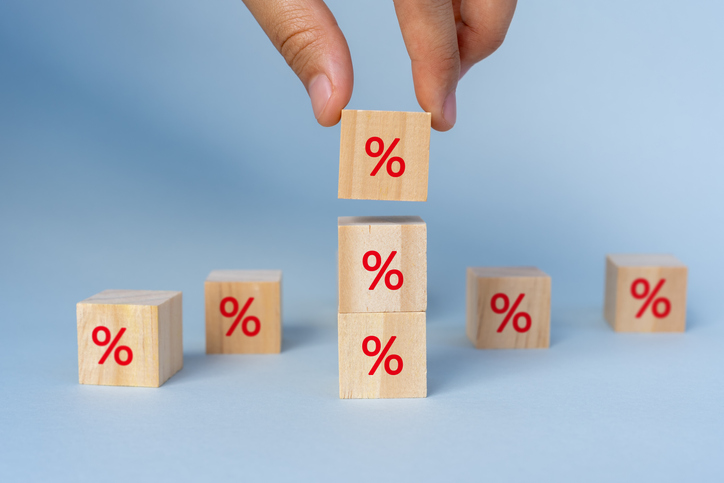Interest rates hold for April following RBA meeting
It’s welcome news for mortgage holders amid cost of living pressures
The RBA has decided to keep interest rates on hold following a meeting of the board this afternoon. In a widely anticipated move and amid growing pressure from government and key players in the housing sector, the Reserve Bank of Australia has broken a 10-month streak of consecutive rises in the cash rate, leaving interest rates at 3.6 percent.
In a statement released earlier today, governor of monetary policy at the RBA, Philip Lowe, reaffirmed last month’s assertion that ‘monetary policy operates at a lag’ but said it was likely that inflation in Australia has already peaked, with further falls expected over the course of this year and next.
Inflation hit a high of 8.4 percent in December 2022 but fell slightly in January to 7.4 percent and again in February to 6.8 percent.
“Goods price inflation is expected to moderate over the months ahead due to global developments and softer demand in Australia,” Mr Lowe said in a statement.
“Meanwhile, rents are increasing at the fastest rate in some years, with vacancy rates low in many parts of the country. The prices of utilities are also rising quickly.
“The central forecast is for inflation to decline this year and next, to around 3 percent in mid-2025. Medium-term inflation expectations remain well anchored, and it is important that this remains the case.”
The news has been received positively by the building and property sectors.
Master Builders Australia CEO Denita Wawn said the decision to pause a further rise was welcome.
“Interest rate rises coupled with rising inflation have forced building and construction activity and new homes sales to slow sharply over the last few months,” she said in a statement.
“A strong building industry is the foundation of a strong economy. The close interdependence between the health of the construction industry and the economy’s fate is clear to see in the current environment.
“The RBA has rightfully recognised the negative impacts of rapidly rising interest rates on accelerating rental prices and construction activity.”
CoreLogic research director, Tim Lawless, said the decision would boost confidence in the property market ahead of further falls in the rate of inflation.
“An increased level of certainty around the rate hiking cycle should flow through to an improvement in consumer sentiment, which has been stuck at levels seen during the worst of the Global Financial Crisis and early phase of the pandemic,” he said.
“We know that consumer sentiment and housing market activity have a close relationship, so any upwards movement in spirits could see more buyers and sellers returning to the market, although we would need to see sentiment lift materially before returning to average levels.”
This stylish family home combines a classic palette and finishes with a flexible floorplan
Just 55 minutes from Sydney, make this your creative getaway located in the majestic Hawkesbury region.
Continued stagflation and cost of living pressures are causing couples to think twice about starting a family, new data has revealed, with long term impacts expected
Australia is in the midst of a ‘baby recession’ with preliminary estimates showing the number of births in 2023 fell by more than four percent to the lowest level since 2006, according to KPMG. The consultancy firm says this reflects the impact of cost-of-living pressures on the feasibility of younger Australians starting a family.
KPMG estimates that 289,100 babies were born in 2023. This compares to 300,684 babies in 2022 and 309,996 in 2021, according to the Australian Bureau of Statistics (ABS). KPMG urban economist Terry Rawnsley said weak economic growth often leads to a reduced number of births. In 2023, ABS data shows gross domestic product (GDP) fell to 1.5 percent. Despite the population growing by 2.5 percent in 2023, GDP on a per capita basis went into negative territory, down one percent over the 12 months.
“Birth rates provide insight into long-term population growth as well as the current confidence of Australian families,” said Mr Rawnsley. “We haven’t seen such a sharp drop in births in Australia since the period of economic stagflation in the 1970s, which coincided with the initial widespread adoption of the contraceptive pill.”
Mr Rawnsley said many Australian couples delayed starting a family while the pandemic played out in 2020. The number of births fell from 305,832 in 2019 to 294,369 in 2020. Then in 2021, strong employment and vast amounts of stimulus money, along with high household savings due to lockdowns, gave couples better financial means to have a baby. This led to a rebound in births.
However, the re-opening of the global economy in 2022 led to soaring inflation. By the start of 2023, the Australian consumer price index (CPI) had risen to its highest level since 1990 at 7.8 percent per annum. By that stage, the Reserve Bank had already commenced an aggressive rate-hiking strategy to fight inflation and had raised the cash rate every month between May and December 2022.
Five more rate hikes during 2023 put further pressure on couples with mortgages and put the brakes on family formation. “This combination of the pandemic and rapid economic changes explains the spike and subsequent sharp decline in birth rates we have observed over the past four years,” Mr Rawnsley said.
The impact of high costs of living on couples’ decision to have a baby is highlighted in births data for the capital cities. KPMG estimates there were 60,860 births in Sydney in 2023, down 8.6 percent from 2019. There were 56,270 births in Melbourne, down 7.3 percent. In Perth, there were 25,020 births, down 6 percent, while in Brisbane there were 30,250 births, down 4.3 percent. Canberra was the only capital city where there was no fall in the number of births in 2023 compared to 2019.
“CPI growth in Canberra has been slightly subdued compared to that in other major cities, and the economic outlook has remained strong,” Mr Rawnsley said. “This means families have not been hurting as much as those in other capital cities, and in turn, we’ve seen a stabilisation of births in the ACT.”
This stylish family home combines a classic palette and finishes with a flexible floorplan
Just 55 minutes from Sydney, make this your creative getaway located in the majestic Hawkesbury region.


















